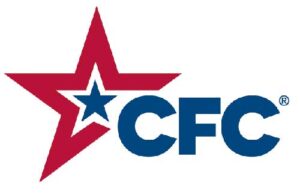Over the first weekend this April, two brothers killed their father, mother, grandmother and sister and then later committed suicide. Both of them, Farhan and Tanvir Towhid, suffered from depression. Farhan was 19 years and Tanvir 21 years.
After the act Farhan posted a 6 page letter on Instagram “Hey everyone. I killed myself and my family.” In his letter Farhan talked about many things: depression since the 9th grade, cutting himself, being helped by his Dad and receiving medical help, unable to be happy, the ease of getting the guns, suicide pact with his brother, killing family members out of love as they wouldn’t be able to bear the loss of the two brothers.
The police officer who reached the home after someone saw the Instagram posting, described it as a “tragedy beyond description”. He also said that it appeared Farhan “wanted to be heard”.
WANTING TO BE HEARD
Too often mental health problems are shuttered out in South Asian families, not acknowledged and treated. The mentally disturbed person is expected to cope.
The health issue is real. The pain is real. The outcome can be very sad if the condition is not alleviated and treated adequately. Accepting mental health at par with physical health is critical, as Farhan says in his ‘farewell’ letter “I don’t get why mental illnesses are treated so differently from physical ailments.”
LIVING BETWEEN TWO CULTURES
Young adults, who study and work by Western norms but at the same time observe traditional cultural values, can suffer a lot of conflict and stress. Discrimination and racist slurs can add to this immeasurably. While therapists, helplines, and school counseling centers are available, and visible, South Asian young adults are often influenced by the opinion of their parents on mental illness.
CULTURALLY SENSITIVE THERAPY
Therapists also need to be attuned to cultural mores and traditions to give effective therapy – the best way out is possibly finding a practitioner from one’s own community. An online directory South Asian Therapists is attempting to fill this requirement.
Online communities like Dil to Dil and Brown Girl Therapy are trying to break the stigma of mental illness and help sufferers find a voice, and maybe a solution. Both communities are active on Instagram.
If you or someone you know needs help, call the National Suicide Prevention Lifeline at 800-273-TALK (8255). You can also text a crisis counselor by messaging the Crisis Text Line at 741741
Further reading
https://www.washingtonpost.com/nation/2021/04/06/texas-family-murder-suicide/
https://www.oxygen.com/crime-news/farhan-and-tanvir-towhid-kill-4-family-members-in-murder-suicide
https://americankahani.com/community/bangladeshi-american-brothers-kill-family-of-four-in-murder-suicide-in-suburban-dallas-home/
https://scroll.in/global/971366/the-silent-mental-health-crisis-among-south-asian-immigrants-in-the-us-is-crying-to-be-addressed
https://diltodil.org/
http://joinsapha.org/community-guide/mental-health-facts/


![🎟️ Tickets are now live!
Be part of something meaningful on March 22, 2026, at Ashiyanaa’s Journeys of Courage Fundraising Gala. Experience a powerful night of strength, hope, and transformation. Get your tickets now and stand with us for change. 🦋
🌐 https://paybee.io/quickpay.html?handle=ashiyanaa
[Journeys Of Courage, Ashiyanaa, Fundraising Gala, Save The Date, Empowerment, Community Event, Charity Event, Nonprofit, Survivors Support, Gala 2026, Hyatt Regency Reston]](https://ashiyanaa.org/wp-content/plugins/instagram-feed/img/placeholder.png)


